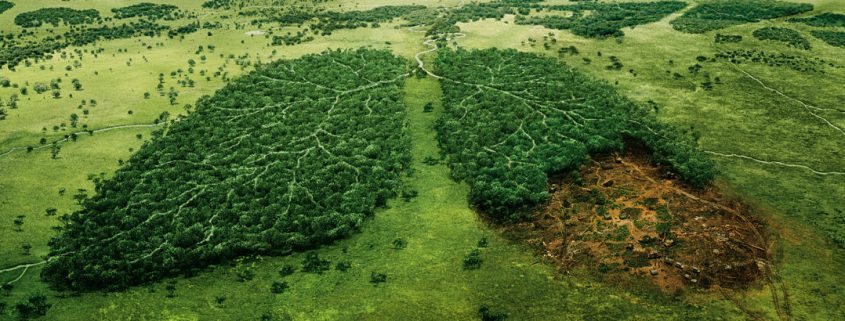How What You Eat Affects The Environment
Global warming is progressing – our climate is becoming more unpredictable, coastal homes are being destroyed and forecasted damage is becoming less of a futuristic horror story and more of a new-generation reality.
It’s incredible to see how many people care – how many people make conscious efforts to walk more and drive less, or to change their lightbulbs, or to recycle, or preserve water. However, people can only act on what they know and understand, and the sad truth is that the number one contributor to global warming, deforestation and the emission of methane into our atmosphere is widely unknown.
The number one contributor is not energy consumption. It is not transport. It is not simply an over-watering of our front gardens (although all these three play a large role).
The number one contributor is in fact Animal Agriculture.
Let’s get the facts* straight:
- Animal agriculture is responsible for 18% of all greenhouse gas emissions (and this, as a comparison, is more than all modes of transport… combined)
- Livestock and their by-products account for 51% of all worldwide greenhouse gas emissions
- At the current rate of demand and consumption, emissions for agriculture are projected to increase 80% by 2050
- Cows alone produce 150 billion gallons of methane per day; and methane has a global warming potential 86 times greater than Carbon Dioxide over a twenty year period
- Agriculture is responsible for 80-90% of the U.S. water consumption
- Reducing methane emissions through addressing animal agriculture would provide almost immediate, positive benefits
- 2,500 gallons of water are required to produce only one pound of beef
- 2-5 acres of land are needed per cow
- ⅓ of the earth’s surface has been desertified, and livestock is the leading cause for deforestation globally
- We could see fishless oceans by 2048 simply due to fishing and the demand for fish in our diets
- As many as 2.7 trillion animals are plucked from the ocean each year
The amount of facts and scary realities surrounding animal agriculture is unbelievable – this list alone could go on for pages. But the message remains the same: what you eat – animals and animal products – have a direct and profound impact on our environment. Even if you were to stop driving, shortened all your showers to two minutes each time, turned on lights only when and if you needed them and consciously recycled as often and cleanly as possible, the consumption of beef and other animal products would keep enormous your personal carbon footprint.
Now, I won’t sit here and preach virtually and harshly the need for everyone to suddenly and wholeheartedly adopt a vegan lifestyle. Veganism is a choice, and a conscious effort, I understand. The same goes, even, for becoming vegetarian or pescatarian. Some people are simply frightened out of these dietary choices by labels, social stigmas and a minority of aggressive activists.
However, I will preach to you that if you claim to care about the environment in any way, shape or form (and you should, given the undeniable facts that are flooding our internet and social media awareness today about global warming and human civilization), then you need to address the way you eat.
Many people consume animals and animal products for religious and other traditional, innate reasons. Sometimes it’s a lack of education (believe it or not, meat is not your only source of protein!) However, many people choose to continue eating animals and animal products purely for taste, habit and/or convenience. There is a vast difference, yet also vast similarities.
At the end of the day, turning away from consuming animals and animal products will help our earth (and you) – and yes, one person makes a difference. Change of this manner is spread through a ripple effect: the less people that want to eat animals, the less demand for meat and animal products exists within society, the less factories can afford to continue operating slaughterhouses or cutting down rainforests for grazing.
Even if you decide not to cut out animal products, simply turning away from beef – the leader of all animal contributors by significant lengths – to other animal products can and will make an enormous difference.
What you eat affects where you live, and how you live.
Lucky what you choose to buy and consume is completely up to you, day in, day out.
It’s that simple.
*Source: COWSPIRACY, 2014

